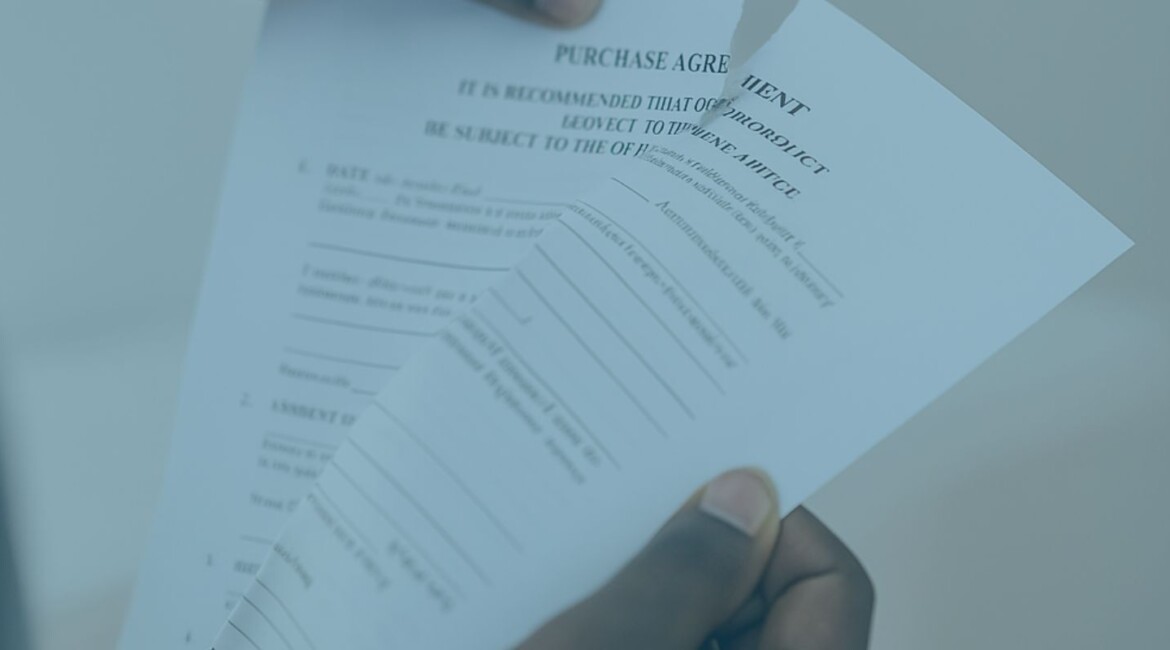
Breach of Contract – What Counts and What to Do

Contracts form the backbone of almost every business and personal transaction. Whether you are hiring a contractor, supplying goods, or entering into a partnership, a well-drafted contract sets out what each party has agreed to do and when.
But what happens when one side fails to uphold their end of the bargain?
Watch our 1.35 minute video to give you a snapshot of what a Breach of Contract is and understand what that means and how to recognise it and then read below to follow our 6 Steps to save you time, money and unnecessary stress.
What Is a Breach of Contract?
A breach occurs when one party fails to perform their contractual obligations without a valid legal excuse. Breaches can take many forms, for example:
- Failure to pay for goods or services.
- Failure to deliver goods or complete services on time.
- Providing substandard work or products that do not meet contractual specifications.
- Unlawful termination of the agreement before its completion.
Even something that seems minor, like a small delay, can amount to a breach if it causes loss or goes against what was agreed.
It is also important to distinguish between minor (or partial) breaches and material (or fundamental) breaches. A minor breach might allow you to claim compensation, while a material breach could entitle you to terminate the contract altogether.
Step 1: Review the Contract Carefully
When a potential breach arises, the first thing to do is review the contract in full.
Pay particular attention to:
- Deadlines and time limits – is there a specific date by which performance was due?
- Notice and termination clauses – do you need to follow a particular procedure before taking action?
- Liability and limitation clauses – these often cap the amount of damages one party can claim.
- Alternative dispute resolution provisions – some contracts require mediation or arbitration before court proceedings.
By understanding exactly what the contract says, you can better assess whether a breach has occurred and what remedies are available.
Step 2: Keep a Clear Record of Events
Good record-keeping can make all the difference in resolving a dispute.
Keep copies of all relevant documents, including emails, letters, meeting notes, and any messages exchanged. Note down dates and details of missed obligations or broken promises.
If you end up pursuing legal action, this evidence will be crucial in demonstrating both the existence of the contract and the breach itself.
Step 3: Attempt Early Resolution
In many cases, an open and pragmatic conversation can resolve matters before they escalate.
Reach out to the other party to explain your concerns clearly and calmly. Sometimes breaches occur because of misunderstanding or temporary difficulties that can be rectified without formal proceedings.
However, always be cautious about what you say in writing or over the phone. Anything you communicate could later be used in evidence, so stick to the facts and avoid emotional or speculative language.
Step 4: Send a Letter Before Action
If informal discussions fail, the next step is to issue a Letter Before Action (“LBA”). This is a formal legal letter that:
- Summarises the key facts and terms of the contract;
- Explains precisely how the other party has breached the agreement;
- Sets out what you are seeking (for example, payment, delivery, or rectification); and
- Provides a clear deadline for response before further action is taken.
A well-drafted LBA often prompts swift resolution without the need to issue proceedings. It shows that you are serious about enforcing your rights while still giving the other side an opportunity to settle matters amicably.
At The Jonathan Lea Network, we regularly assist clients with drafting persuasive and legally robust LBAs that encourage compliance and avoid unnecessary litigation.
Step 5: Consider Legal Remedies
If the breach remains unresolved, you may need to explore your formal legal options. The most common remedies include:
- Damages – financial compensation for the loss suffered because of the breach.
- Specific performance – a court order requiring the other party to carry out their contractual obligations.
- Injunctions – orders preventing a party from taking certain actions, such as disclosing confidential information.
- Termination – the right to end the contract and, if appropriate, claim damages for loss.
The appropriate remedy will depend on the nature of the breach and the wording of your contract. Legal advice is essential at this stage to ensure you pursue the most effective course of action.
Step 6: Act Promptly
Delays can weaken your position. Some contracts impose strict time limits for notifying a breach or making a claim. In addition, under English law, most contractual claims must be brought within six years (or twelve years for contracts executed as deeds).
Seeking professional advice early ensures that you do not miss important deadlines and helps preserve your negotiating leverage.
How We Can Help
Contract breaches are common, but they do not have to lead to costly disputes. By understanding your rights and acting promptly, reviewing the contract, gathering evidence, and seeking legal advice, you can often resolve matters quickly and avoid further escalation.
At The Jonathan Lea Network, our team advises businesses and individuals on all aspects of contract law, from drafting and negotiation through to dispute resolution and enforcement.
If you believe a contract has been breached, or if you have received a LBA and need to respond, our team can help you assess your options and protect your interests.
We offer a no-cost, no-obligation 20-minute introductory call as a starting point or, in some cases, if you would just like some initial advice and guidance, we will instead offer a one-hour fixed fee appointment (charged from £250 plus VAT to £350 plus VAT* depending on the complexity of the issues and seniority of the fee earner).
Please email wewillhelp@jonathanlea.net providing us with any relevant information ensuring that any call we have is as productive as possible or call us on 01444 708640. After this call, we can then email you a scope of work, fee estimate (or fixed fee quote if possible), and confirmation of any other points or information mentioned on the call.
VAT is charged at 20%.
This article is intended for general information only, applies to the law at the time of publication, is not specific to the facts of your case and is not intended to be a replacement for legal advice. It is recommended that specific professional advice is sought before relying on any of the information given. © Jonathan Lea Limited.
